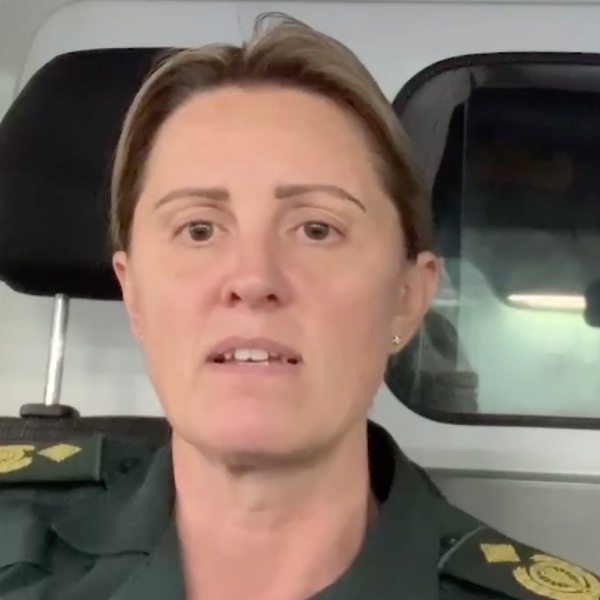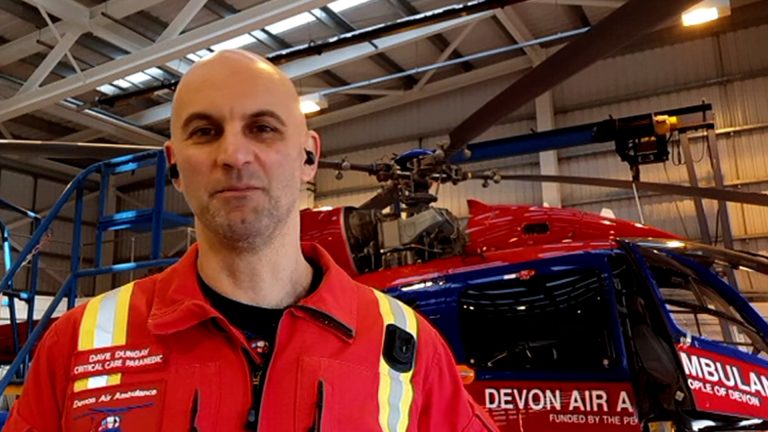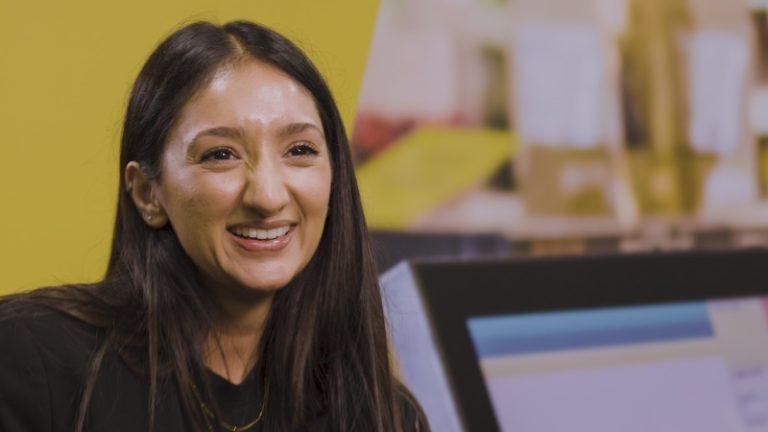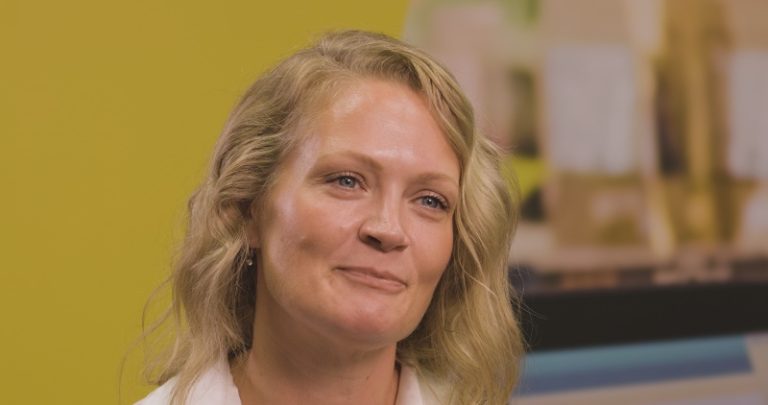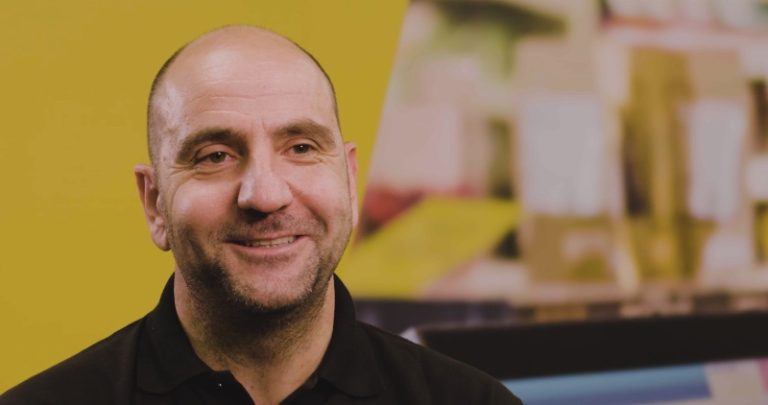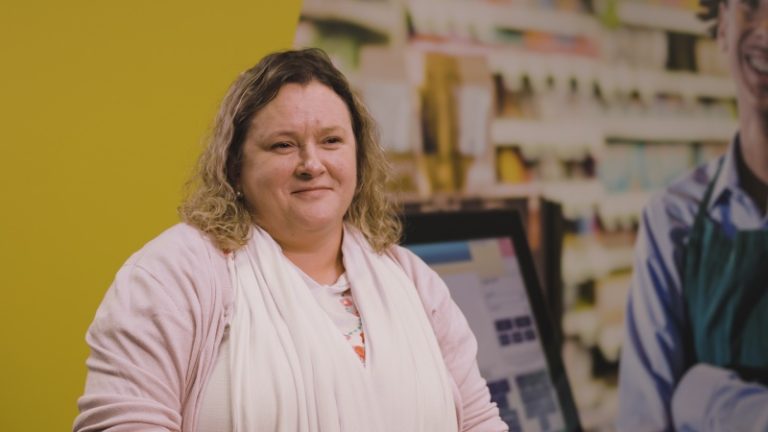Explore: Emergency services
Paramedic
South Central Ambulance Service, NHS
info Issues viewing the video?
| Nicola
Paramedic |
|
| 00:07 | From a very young age, I always knew what I wanted to do. I was 5 years old, a bit of a tomboy and my mum bought me a fire engine, a police car and an ambulance, and they had a little blue flashing light at the top and I said to my mum, ‘One day, mum, I’m gonna drive one of those nee-naws’. I wasn’t ever what nee-naw it was gonna be. |
| 00:27 | I left school at 16 with just 3 GCSE’s, but, you know, looking back, they, they were the most important GCSE’s that I could’ve left school with. |
| 00:37 | I didn’t really like school, but I left with English, maths and a science qualification, and thankfully, they were the 3 that I needed to join the ambulance service. However, since then, I think I’ve done most of my learning since I left school, and I think as you get older you appreciate learning more, erm, and my ability to learn has got easier as I’ve gotten older, and don’t ever think that you get too old, that you can’t, can’t try something new. You absolutely can, it doesn’t matter what age you are. I have achieved a foundation degree, I’ve also got, erm, a diploma in health and emergency planning, I’ve also, just about to complete my BSc Honours in paramedic science, which is just an achievement in itself. |
| 01:30 | You need to be trustworthy. You need to be trusted by the patient and you need to be trusted by your colleagues. Have an openness to peoples’ feelings, that you are competent in yourself and confident in what you’re doing. People need to know that they can trust you. You need to show that warmth side of you, be affectionate and friendly. It goes a long way for people to remain calm in your presence. |
| 02:03 | I thought I could drive until I joined the ambulance service and, erm, they retaught me everything I needed to know, because driving much bigger vehicles and having that, that perceptional awareness of your surroundings is something that you’re taught, so, as much, you get, you need to get as much practice in driving as you possibly can. Other than that? If you want excitement and you want a bit of a thrill and you don’t mind the ups and downs of an every day job, and you can deal with it and be happy at the same time, then this is just the career for you. |
| 02:40 | You could come into the ambulance service either as an emergency care assistant, and they are our drivers and they assist the paramedic with, erm, the, our delivery of patient care. They come in with 3 GCSE’s, we train them on a 9-week training course and at the end of about 18 months, they can progress on to become, perhaps maybe an associate ambulance practitioner, and then, once they’ve achieved that role, they can then aspire to be a paramedic. After that, the world’s your oyster, you can become a specialist paramedic, you could move into management, like I did, you could go on to do your master’s and perhaps maybe become a doctor, who knows? The opportunities are far greater nowadays than they ever have been, and so the opportunities are there for the taking. |
| 03:43 | It’s so important to get your English and your math and a, another subject as a minimum, really, because it will lead to many more doors opening for you. |
| 03:55 | So, even as a paramedic, time on the road can be really busy but there’s always time to have a cup of tea, so, er, cheers! |
| 04:14 | END OF TRANSCRIPTION |
Nicola knew she wanted to drive emergency vehicles from a very young age. She didn’t really like school and left with three GCSEs. “I think I’ve done most of my learning since I left school, and I think as you get older you appreciate learning more.” She’s since gone on to get a foundation degree and is just about to complete a degree in paramedic science.
More information about Medical and dental technicians
Data powered by LMI For All
£25,480
average salary
The UK average salary is £29,813
33
average weekly hoursThere are 37.5 hours in the average working week
36%
male
64%
female
The UK workforce is 47% female and 53% male
Future employment
Future employment
Description
Medical and dental technicians operate, calibrate and maintain cardiographic and encephalographic testing equipment, assist in the conduct of post mortems, give simple dental treatments, fit artificial limbs and hearing aids, and undertake a wide range of related medical and dental tasks.
Qualifications
Entrants usually possess GCSEs/S grades, BTEC/ SQA awards, an Intermediate GNVQ/GSVQ Level II or A levels/H grades. Training may last up to five years depending upon the field and method of study. Professional qualifications and NVQs/SVQs at Level 3 are available in some areas.
Tasks
- Operates equipment to diagnose and record or treat hearing, heart, brain, lung and kidney ailments
- Undertakes scaling and polishing of teeth, applies medicaments, carries out post-operative hygiene work and advises on preventative dentistry
- Makes dentures, crowns, bridges, orthodontic and other dental appliances according to individual patient requirements
- Measures patients for, and fits them with, surgical appliances, hearing aids and artificial limbs
- Performs related medical tasks including treating hair and scalp disorders and conducting tests on glaucoma patients
- Takes samples for clinical examination
Employment by region
Top 10 industries for this job
Health
30406
Residential care
1103
Employment status
Related career stories
⇦
⇨
